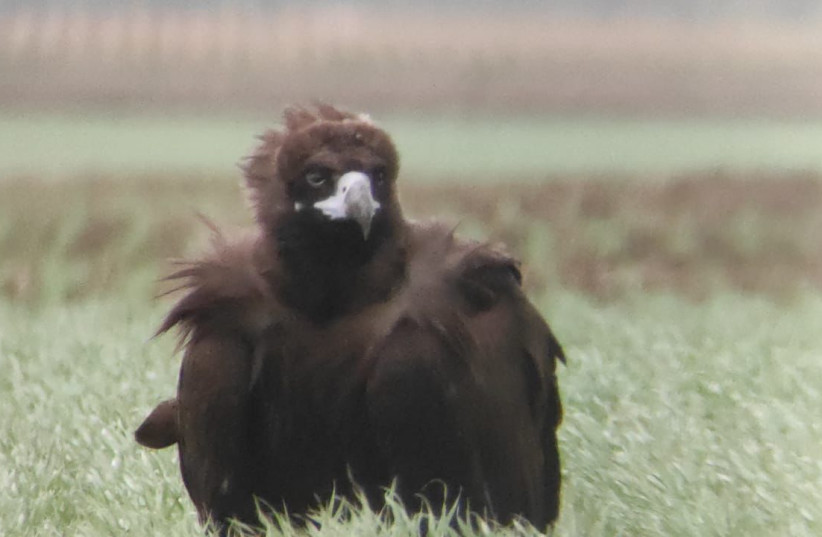A cinereous vulture (Aegypius monachus) was documented in Israel on Wednesday by Nadav Israeli, a senior birder at the Society for the Protection of Nature in Israel (SPNI), according to a statement by the environmental organization.
The large, dark-feathered raptor, which nests in trees on wooded mountain slopes, is endangered in Israel. Only about 10 are seen in the country each year, usually near the Galilee, the Golan Heights and Mount Hermon, according to SPNI.
Israeli was alerted to the vulture's presence by another birder who initially spotted the rare bird.
Israeli noted that the SPNI are currently concerned about the vulture's condition: "She worries us mainly because her flight is low and short, and we saw her vomit a bit," he said.
According to SPNI's Israeli Birding Portal, the cinereous vulture began to disappear from the region at the beginning of the 20th century. Since then, no nesting activity has been documented in Israel.

The organization attributes this to a decrease in the species' population in parts of Europe, as well as the failure of conservation efforts in neighboring countries. It also cited wind turbines as posing an existential threat to the cinereous vulture population.
"The chances of the species returning to nest naturally in Israel are estimated to be low, due to the declining population in southeastern Europe, and the nature conservation situation in neighboring countries (Syria, Lebanon and Turkey) that does not allow a continuous population from Europe to the Middle East," a statement from the Birding Portal read.
